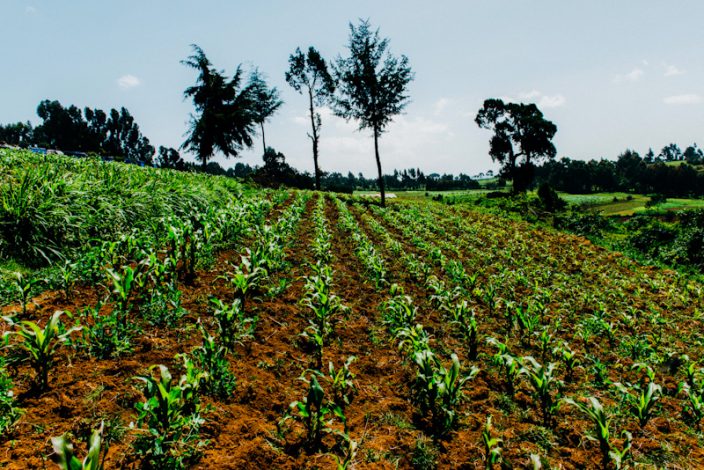Western Kenya region residents depend on agriculture for their livelihood, yet sector inefficiency is widespread across the region and the rest of the country.
Farmers cannot access reliable markets, buyers cannot access reliable markets, source adequate quantities of produce and intermediaries cannot cost-effectively provide services.
The end result is supply chain disorganization that depresses household income, increased food insecurity and hinders business development.
Enhancing inclusive and sustainable current agricultural information systems in different value chains and information needs that would promote development in domestic horticulture are needed to unleash agricultural potential.
Strengthening agriculture especially domestic horticulture is one of the key issues that often bring together various stakeholders from the agriculture sector and farmers in trying to focus on creating a dynamic smallholder sector.
A vibrant rural sector in Western Kenya, in general, generates local demand for locally produced goods and services. In turn, this can spur sustainable non-farm employment growth in services, agro-processing, and small-scale manufacturing.
Alternative farming technology is rarely adopted because farmers lack adequate access to credit inputs and markets. Water is a limiting factor. Only farmers with access to water and efficient water management technologies can effectively practice crop diversification.
Several hindrances include lack of awareness, lack of institutional framework in terms of non-existent or poor policies at national and local levels, information gaps, low investment in research and development and lack of private sector participation.
Farmers who experience an increased level of income are able to branch out into the unexplored territory of income-generating activities such as growing high-value crops such as onions, tomatoes, and kales.
Building partnerships with agricultural organizations to help small farmers improve their agricultural output and make it easier to buy and sell their products at local or regional markets- food supply for both long and short-term expand opportunity and strengthen regional economies.
Fostering opportunities for new business in emerging sectors, creating conditions that will help small innovative firms grow, revitalizing the local economy, including considering the role of economic diversification, building community capacity enhancing knowledge resources and institutional, human and social resources.
The Prime Minister of Viet Nam, Nguyen Tan Dung during the opening of the 2nd Global Conference on Agriculture, Food Security and Climate Change “Hunger for Action” in Hanoi of Viet Nam September 2012, said partnerships are important across nations, private partnerships, civil societies and farmers as not only crucial but key in ensuring food security but also curbing new challenges that arise due to climate change.
Alex O. Awiti an Ecosystems Ecologist based at the Aga Khan University, Faculty of Arts and Sciences (East Africa) says, more productive, sustainable and resilient agriculture requires transformations in how rural people manage natural resources and how efficiently they use these resources as inputs for crop production. For these transformations to occur, it is essential that the world’s farmers, scientists, researchers, the private sector, development practitioners and food consumers come together to achieve climate-smart agriculture.
“Therefore, targeted investments in food production and high-value market-led produce should pay off both in terms of food security at a time of soaring food prices and in terms of household income and national economic development. The debate now focuses on where that investment should go.”
He says, “The challenge, therefore, is how to increase productivity among subsistence smallholder farmers. The opportunity and innovation lie in the role of policy, technology, research support and institutional arrangements that can aggregate production of the small farm rather aggregating the land resource base, “excerpts from his “Which way for Africa’s Agriculture?”
READ
A look at the Economic Recovery Strategy as stated in the Vision 2030 for revitalizing agriculture with an aim of transforming Kenya into a “middle Income Country” as well as Millennium Development Goal No.1 which aims to “Eradicate extreme poverty and Hunger” proposes intensive farming for small scale farmers.
Stakeholders in the sector say their drive is to transform agriculture into a profitable economic sector capable of attracting private investments, providing gainful employment and food security for its people in line with the government priorities.
However, this has not been fully realized through the formulation and implementation of policy reforms to enable the farmers and stakeholders to move from subsistence production to market-oriented ventures through the adoption and use of modern technologies and business practices.
The late Professor Calestous Juma of the Harvard, Kennedy School interested in innovation for development in The New Harvest: Agricultural Innovation in Africa, the ability of the continent to feed itself will depend largely on the extent to which it is able to harness the world’s scientific and technological knowledge and put it to local uses.
Access to timely information by rural communities cannot only increase agricultural productivity but enhance social and economic development many farmers in rural areas lack basic access to information.
According to the Africa Human Development Report 2012 –Towards a food secure future, it says, “With real-time information on prices, transport costs and demand, farmers can adjust their production and marketing and increase their efficiency.”
It adds that “Information can also reduce food price volatility by better integrating rural markets, and it can expose unscrupulous traders, making it harder for them to cheat farmers. When farmers, transporters, sellers, and buyers communicate regularly and rapidly, prices become more transparent, transaction times fall and the bargaining power of small producers increases.”
There is a need to bring the knowledge and perspective of farmers together with decision-makers at other levels. It is crucial that research in agriculture, food security, and climate change conditions improve and deliver to allow more confident decision making and allocation of limited resources to all.



